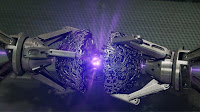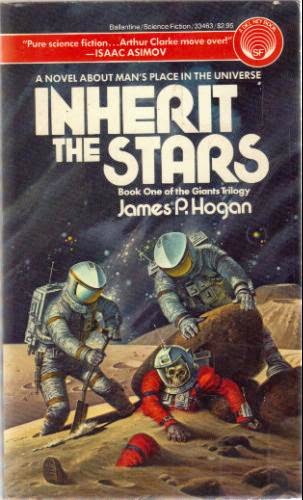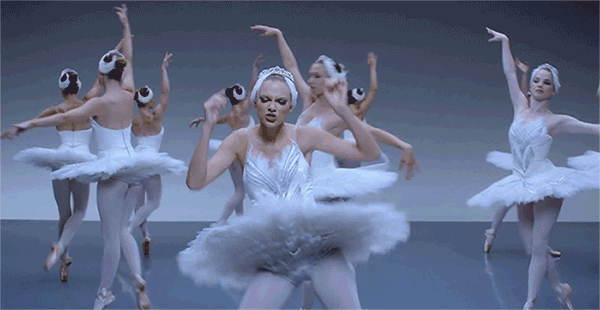Hello, all. Sorry again for the delay. I’ve been beating myself near-senseless against this new draft, and tax stuff, and prepping for a con (Texas Frightmare in Dallas/Fort Worth—one week from now!). Plus I got selfish and decided to sleep for three hours one night… I think we’re going to be back for the next several weeks with no problem, though. I just focused a lot on the new book because I feel like there’s a lot riding on it.
Speaking of which…
If you listen to writer-types a lot, one term you’ve probably heard a few times is the stakes. What are the stakes? What’s at stake? Something like that.
Every story needs stakes. Simply put, the stakes are the possible repercussions of failure or inaction. It’s what’s going to happen if my characters don’t succeed in their various challenges.
This may seem a little silly to say, but generally those repercussions are bad. A common thing we see at stake is someone’s life—or maybe many people’s lives. Maybe it’s the protagonists, maybe it’s the life of someone else. For a lot of summer movies it can mean the fate of the whole world. The old school/orphanage/watering hole is another common stake. Freedom’s one, too. Secretes being revealed. And there’s always money (billions of dollars at stake!). These are all great stakes to have in a story. It’s also not uncommon for a story to lead us in by claiming X is at stake, only to twist things a bit and let us see we’re trying to prevent a much bigger Y from happening.
Stakes can also be internal, more about my story than my plot. Maybe Wakko’s sense of self-worth is at stake. Or maybe his dream of being an astronaut. Or of getting the girl.
(…although let’s face it. If Beth is only interested in you because you can ski the K-12, maybe she’s not really worth it. Have you noticed that cute foreign exchange student across the street? She seems like a much better person overall…)
Now, this brings up a key point. You may notice a lot of the stakes in that last paragraph are kind of small. Minor, you might even say. And it’s true, these are small-scale stakes—for you and me. For Wakko, though, these stakes are huge! And in a small, personal story that’s fine.
See, the thing about stakes is they have to be high for my character. That’s what matters. Yes, it’s horrible if a husband/father might die in a taxi crash in New York, but stopping it from happening is going to mean a lot more to his wife and kids than it does to me. If we were in the position, any of us would try to stop it—we’re all decent people—but none of us is going to have that sheer needto stop it that his wife and kids would. For them, those stakes are much bigger.
So, hey, let’s talk about this with a shameless Marvel movie reference…
 In Ant-Man, Hank Pym has a long talk with Scott Lang where he explains the whole situation with his shrinking technology, the balance of power, and his old assistant Darren Cross. Scott listens, then very calmly says “I think our first move should be… calling the Avengers.” And we all laugh, because this is a perfectly reasonable thing to say in the Marvel Cinematic Universe when someone has what feels like a big problem.
In Ant-Man, Hank Pym has a long talk with Scott Lang where he explains the whole situation with his shrinking technology, the balance of power, and his old assistant Darren Cross. Scott listens, then very calmly says “I think our first move should be… calling the Avengers.” And we all laugh, because this is a perfectly reasonable thing to say in the Marvel Cinematic Universe when someone has what feels like a big problem. The ugly truth is, though, in a world where AI robots drop cities out of the sky and fish oil pills can bring destructive superpowers or death… Hank’s problems are kind of small scale. No pun intended. And when he busts Scott out of jail and gets him involved so Scott will have a chance to repair things with his ex-wife and daughter, well… it’s still pretty small. Keeping technology from falling into the wrong hands, a jailbreak, stopping the crazy apprentice, fixing my life so I can be with my daughter… these are all small stakes, in the big scheme of things.
Thing is, that’s exactly why they work. It’s completely believable that Hank will be obsessed with how the technology he invented is used. With all the problems in the world, we wouldn’t buy it if the Black Widow or Thor showed up just to save this one guy’s daughter—but it’s very believable that Scott would do anything he could for his daughter.
Another point, kind of related to the personal aspect. Stakes need to be believable. As I’ve said many, many times, storytelling all comes down to characters. If I can’t believe in what my characters are experiencing or encountering, in their motives or goals, it’s going to be really hard for me to believe in the story as a whole. I believe in the Infinity Gem creating some very high stakes in Guardians of the Galaxy—an entire story set against a cosmic, futuristic backdrop—but that kind of nigh-omnipotent power just wouldn’t fit in Ant-Man. The tone needs to be believable, too. Again, cosmic vs. small and personal, epic vs. intimate. There’ve been numerous Muppet movies with high stakes, but none where the goal is to stop a serial killer or prevent a bioterror attack. These stakes are high, no question, but they’re just not the right tone for a story starring the Muppets.
There’s also a time factor with stakes—there shouldn’t be enough of it. If Yakko has a deadly disease that kills people in thirty years, bare minimum… well, that doesn’t seem that urgent. If Wakko’s daughter is kidnapped and they say they’re not going to think of harming her for six months… well, this is bad, but we’ve got time.
If my stories have a threat, that threat has to happen now. Not in a year, not in a month—now. The window of opportunity for my characters should be closing fast, because if it isn’t… well, human nature, right? Why put it off until tomorrow when I really don’t need to worry about it until August.
August of 2068, just to be clear.
This brings me to another small point (again, no pun intended). The butterfly effect doesn’t really work when it comes to stakes. If you’re not familiar, the butterfly effect is when very small actions lead to very large repercussions. In the classic Ray Bradbury story “A Sound of Thunder,” killing a butterfly millions of years in the past changes a time traveler’s present from a progressive, Federation-esque world to a harsh, neo-fascist one. It’s a common idea. Changing A will result in B, which will give us C, only one short step from D, and after D then E is inevitable. And nobody wants E to happen.
Nobody.
The catch is that it can be very tough to convey that. Stakes need to be a little more immediate and personal and not quite so “long chain of events.” I’ve talked before about keeping things close and personal for my characters—this is that kind of thing.
Let’s look at Ant-Man again. One of the plot points is how much damage Hank’s technology could cause if everyone had it. If Hydra or the Ten Rings got hold of that tech, they could kill anyone with impunity. Armies of 1/16” assassins. Terrifying, right?
And yet… the story kinda brushes over this. It’s addressed, but after that it just becomes about stopping Cross from selling the tech. We don’t need to deal with those further-down-the-road repercussions, we just need to stop him right now. We put a face on it, because these are the stakes that are big to Scott, Hope, and Hank.
So, my stakes need to be big. More importantly, big for my characters. They need to be believable. They also need to be imminent. And they need to be very direct—the more separated they are from the characters and their actions, the less impressive they’re going to be.
Easy, right?
Actually let me toss out one last thought on this…
Hollywood’s convinced a lot of people that everything needs to be huge. Epic-huge! WORLD-SHATTERING HUGE! If the stakes don’t involve at least five billion deaths and/or seventy billion dollars, they’re not high enough. Producers push for this all the time, so these days a lot of screenwriters (and novelists) tend to lean this way automatically…
Thing is though, those kind of stakes can be exhausting for everyone. The readers, the characters… even the writer. That’s one of the other reasons Ant-Man went over well with so many folks. After all the previous Marvel movies had saved the United States from being overthrown (three times), saved mankind from extinction (twice), and even saved the whole galaxy from a would-be god… yeah, it was nice to deal with a story where the stakes were a bit smaller and more personal. Hell, figure one of the best- selling books of the past decade—Andy Weir’s The Martian—is about saving one guy’s life. One. That’s it.
So make sure you’ve got your stakes set.
Next time… we’re going to talk about something we haven’t discussed in a while. Using the rite words.
Until then… go write.











